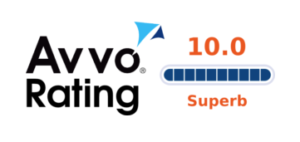



Understanding The UNUM Denial Process
 Imagine dedicating years to your profession, only to be sidelined by an unforeseen disability. You trusted your Unum insurance as a dependable safeguard, a promise of support when needed. Yet, when the moment comes to lean on that safety net, you’re faced with an unexpected denial. Unfortunately, for many Unum policyholders, this distressing scenario is all too common. The challenges and controversies surrounding Unum’s denials have drawn considerable attention, as it remains a major player in America’s disability insurance landscape. In these tough times, the guidance of an Unum Denial Attorney can prove invaluable.
Imagine dedicating years to your profession, only to be sidelined by an unforeseen disability. You trusted your Unum insurance as a dependable safeguard, a promise of support when needed. Yet, when the moment comes to lean on that safety net, you’re faced with an unexpected denial. Unfortunately, for many Unum policyholders, this distressing scenario is all too common. The challenges and controversies surrounding Unum’s denials have drawn considerable attention, as it remains a major player in America’s disability insurance landscape. In these tough times, the guidance of an Unum Denial Attorney can prove invaluable.
Background on Unum
Since its founding decades ago, Unum has carved out a prominent position in the American insurance industry. Its vast customer base and wide variety of policies have made it a preferred choice for many. However, concerns over how Unum handles claim denials have shifted from quiet murmurs to open discussions. While numerous policyholders feel secure with Unum’s coverage, others encounter challenges, especially when their claims are unexpectedly rejected.
Why Claims Get Denied
Insurance companies base their decisions on risk assessment, which can sometimes lead to claim denials. Although each case is unique, there are some common reasons behind these rejections. Denials can occur due to incomplete documentation, missed deadlines, or inconsistencies in the provided information.
Common Tactics
Over time, it has been noted that Unum tends to employ certain strategies more frequently when it comes to denying claims. For instance:
- Workplace Duties: Unum may claim that a policyholder’s injury prevents them from performing all of their workplace duties.
- Medical Examination: Claims may be denied if the medical examinations provided were insufficient.
- Documentation Issues: Although the paperwork may appear to be in order, minor discrepancies or missing details can result in denials.
The Impact of a Denied Claim
A denied claim can have ripple effects that extend well beyond financial concerns. While the immediate burden of not having funds to cover medical expenses or replace lost wages is evident, the emotional and physical toll is often underestimated. The stress and anxiety brought on by a denial can worsen existing health issues or even lead to new ones, amplifying the overall impact of the situation.
Understanding Unum’s Policies and Procedures
To successfully handle a denial from Unum, having a thorough understanding of their policies and procedures is essential. Each policy is unique, with specific terms that require close attention, especially the fine print. Being aware of common mistakes and reasons for denials, like particular exclusions or clauses, can help you proactively address potential issues. Misunderstandings about the policy or the claims process often lead to denials. Regularly reviewing your policy and asking for clarifications when needed can help prevent these problems from arising.
Legal Options Available
When confronted with a denied claim, it’s natural to feel overwhelmed. However, there are legal pathways to contest such decisions:
- Immediate Steps: Upon receiving a denial, carefully review the provided reasons. Verify that all required documentation is complete and resubmit if needed.
- The Appeal Process: If the claim is denied again, you have the right to appeal. This process involves a comprehensive review, often by a different team of evaluators.
- Legal Action: If the appeal doesn’t lead to a favorable outcome, pursuing legal action may be the next option. This doesn’t always result in a lengthy court case—sometimes, the mere filing of legal proceedings can prompt a settlement.
The Importance of Medical Evidence in Unum Denials
Medical evidence plays a pivotal role in the claims process. It’s essential to provide complete, up-to-date records, including doctor’s notes and test results. Understanding how Unum evaluates this evidence is crucial to a successful claim. If a claim is denied, a detailed review of the submitted medical records, along with new tests or expert opinions, can significantly increase the likelihood of an approval upon resubmission.
Tips for a Successful Claim
Getting a claim approved can be challenging, but there are proactive steps to improve your chances. First, maintaining thorough records is crucial. Ensure all medical records, reports, and related documents are organized, and always keep personal copies of everything submitted. Additionally, timely communication is key. Promptly responding to any requests for additional information or clarification from the insurance company is essential. Lastly, knowledge is power. Familiarizing yourself with your policy’s terms, including coverage limits, exclusions, and specific clauses, can help you avoid unexpected complications during the claims process.
Contacting a Unum Denial Attorney
Handling insurance claims can be complicated, especially when faced with an unexpected Unum denial. This underscores the importance of legal expertise. Attorneys experienced in insurance claims can guide you through the intricate process. Large insurers like Unum have vast resources, but working with a Unum denial attorney helps level the playing field. Legal assistance can bring numerous benefits, from quicker settlements to favorable court outcomes. An attorney’s involvement often speeds up resolution. If you wish to consult with a Unum Claim Denial Attorney, please reach out to our firm today.






